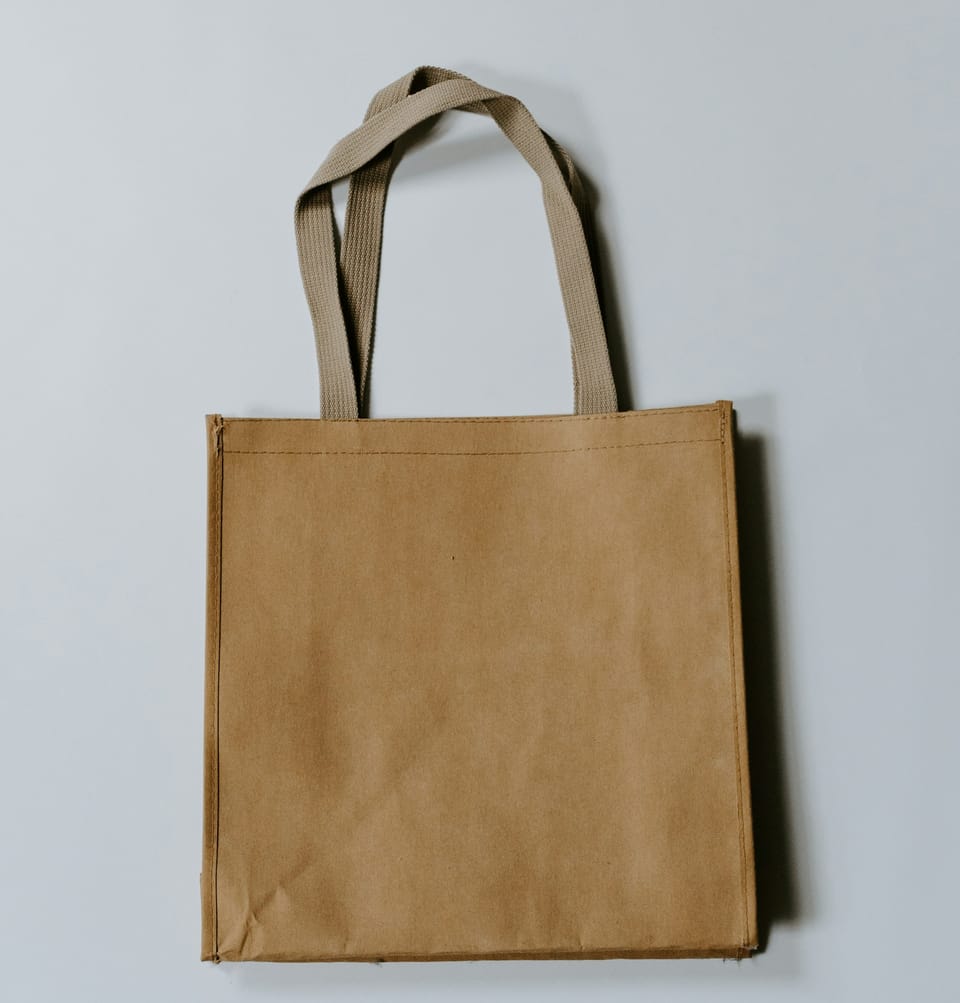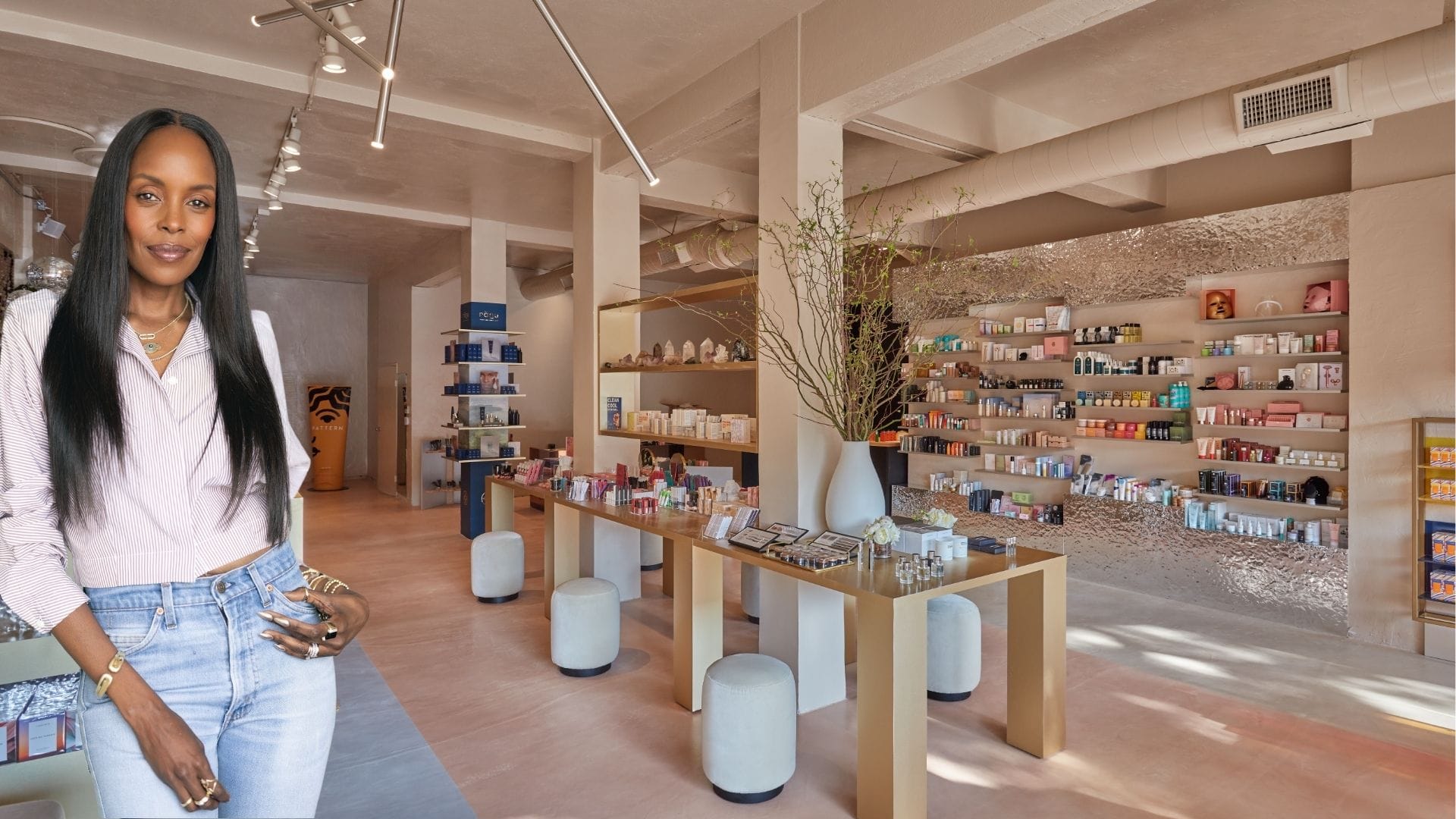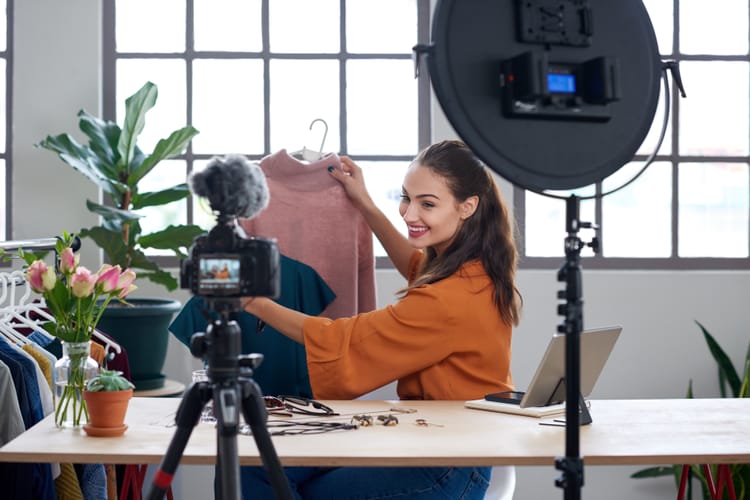The 'Buy Nothing 2025' trend is here

Is “Buy Nothing” actually something? Currently trending for 2025 is consumers’ pledge to buy less. Fueled by diminishing consumer confidence and inflation, underconsumption is gaining steam among Americans of all demographics. The economic landscape is even shakier due to Trump tariff whiplash, and the administration’s DEI walkback may also be felt at retail. Here’s everything you need to know this week, plus a sit-down interview with veteran beauty founder and retailer Nyakio Grieco, who sees inclusion as beautiful.
The SKUpe is your go-to weekly newsletter, delivering the latest retail strategies, industry insights and expert advice for SMB retail professionals straight to your inbox.
Interested in advertising in The SKUpe? Email us to learn more.


The beauty of inclusion: a founder and retailer's journey
Beauty entrepreneur Nyakio Grieco, founder of the Relevant and Nyakio brands and co-founder of inclusive beauty marketplace Thirteen Lune, shares what she’s learned about building trust, saying no and the true meaning of inclusivity. – Marcy Medina
What’s been the biggest factor in your success as a beauty brand founder and a beauty retailer?
I attribute my growth in all areas to the ability to listen to the consumer and find spaces where you can better serve an underserved consumer with storytelling and cultural relevancy. When I founded my first brand, Nyakio, in 2002, I tapped into family traditions—my grandmother was a coffee farmer and my grandfather was a medicine man and as a first-generation American of Kenyan descent, I saw an opportunity in premium skincare to celebrate ingredients from Africa. Thirteen Lune, the retail platform I co-founded in 2020, was about creating a safe space for other founders to enter retail.
What does your slogan “the beauty of inclusion” mean to you?
We are hyper-focused on serving a consumer and a founder that [have] felt left out for far too long. We were never focused only on Black and brown founders. We also invite brands that may not be Black or brown founded but are inclusive of everyone. We carry so many Latina-founded brands. We’re also debunking the myth that Black and brown founders only make products for themselves. The opportunity is less in words and labels and more in showing our community an amazing trip around the globe through our founders and brands. That’s our special sauce.
As a retailer, how do you build trust and long-term relationships with your customers?
It boils down to doing your best to be transparent and to listen to customers.
What's a lesson you've learned about growing a business that could help other retailers?
The power of saying no. It can be really exciting to want to do all the things, but it can be a detriment to the bottom line. Slow and steady wins the race. Take risks, but make sure to keep profit top of mind and do the research on ROI. Also, open your store where there is consistent foot traffic. Where we are in L.A.’s Larchmont Village, people walk in off the street because they hear cool music and see our eyebrow salon and they want to discover and hang out.
What's one thing you're excited to try in your flagship store?
Later this year we plan to invite founders and community to live-sell in our space to reach customers who can’t visit us in L.A.
Above: Photo illustration of Nyakio Grieco at her store Thirteen Lune in Los Angeles

Buy Nothing 2025: Good for wallets, bad for retail?
It can be called lots of things: “No Buy Challenge 2025” or “Project Pan” (as it relates to using a beauty product until you hit the pan in the container.) The trend may have gained visibility via female content creators on social media, but scores of ordinary Americans have been tightening their wallets since before the presidential election cycle started last year. This means fewer nice-to-haves and impulse buys and more bargain and resale shopping. Gen Z and Millennials are also less apt to buy from companies they feel don’t align with their personal views.
Why this matters: Fueled by flagging consumer confidence and inflation, underconsumption is gaining steam among Americans of all demographics. So what’s a retailer to do? Understand the psychology behind the behavior and know what items or experiences people value right now. Some things, like food and clothes, people can’t live without. Others, they’ll find ways to justify even when on a budget. (CNN)

The fight against retail crime: what’s next?
Valentine’s Day spending could top $27B
Fashion balances “Returnuary” with resale
Plan while you can: TikTok’s 2025 marketing cal

The luxury crisis explained, and how to fix it
The Business of Fashion founder Imran Amed recently sat down with Bob Safian of the Rapid Response podcast to explain why the luxury fashion industry has entered a “full-blown crisis,” and what he thinks the industry needs to do to reset.
"This is probably the most severe crisis that I've seen in the luxury side of the fashion industry since the Great Recession. The template business model and approach that the luxury industry has been using for the last decade is running out of steam," Amed says.
Amed shares his inside view of the industry chaos and his predictions for its future. Plus, he discusses how the brands are finally cracking the Indian market, how to gain a competitive advantage with AI and why actress Michelle Yeoh matters to retailers.
Why this matters: Even if you don't sell luxury goods, other retail categories tend to mirror some of the broader economic forces at play. And every luxury customer who's cutting back could represent an opportunity for your business. Listen to the Business of Fashion podcast here.

Emotive AI for non-techy businesses? Meet Palona
Created by former Google and Meta leaders, Palona AI claims to be a personalized, emotive customer agent for non-tech businesses. Launched in late January, it aims to solve a CS/CX pain point with live, 24/7 customer support sales agents that uniquely reflect each business’s brand personality, voice, inventory stock and value proposition. Palona focuses on building AI agents that have high “EQ” or emotional intelligence from a combination of open source and proprietary AI models and training using human sociology research. AI voices are licensed, but Palona has the ability to train and deploy custom ones—like an authorized customer rep or CEO. The founders say that for even the most analog businesses, it takes only several days for a simple implementation.
Why this matters: Tech veterans are creating AI specifically for non-tech companies that interface directly with consumers. If a chatbot that doesn’t type or speak like a robot could be available to a SMB retailer, why wouldn’t they use it? (Venture Beat)

It’s complicated: the changing DEI landscape
In the not-too-distant past, before diversity, equity and inclusion programs became standard practice in corporate America, many people were left out of opportunities for jobs. Now within the span of a few weeks, DEI programs are on the brink of being phased out only a few years after they were implemented.
Why this matters: Retailers need to read past headlines, read between the lines and do their own research to find out how it’s affecting their vendors, as well as do the work within their own companies to make sure employees are getting a fair shake, whether or not there’s an official program in place. (Digiday)

What we are reading: Part One of Bill Gates’ memoir Source Code: My Beginnings, which went on sale this week. He doesn’t need our money (from the book sales) but we want to know what he was like as a kid and what he most regrets.
What we are following: If you want to know what Midwest Millennials are buying/wearing/eating/reading/watching, check out content creator Jessica Braun on Instagram, who started filming beauty videos from her bedroom in her parents’ Indiana home and is now a very likable married mom-of-two. This is how to make paid promotions work: being transparent about your livelihood and authentic about the products you actually use.
What we are watching: The Fashion Fable, a relatively new (joined in 2023) YouTube channel that charts the rise and fall of famous fashion brands and well-known retailers. The latest episode covers the mall brand Forever 21.

Thanks for reading this week's edition!
You can reach the newsletter team at theskupe@mynewsletter.co. We enjoy hearing from you.
Interested in advertising? Email us at newslettersales@mvfglobal.com
The SKUpe is curated and written by Marcy Medina and edited by Bianca Prieto





